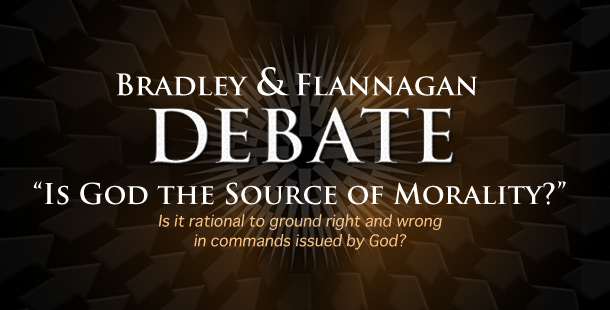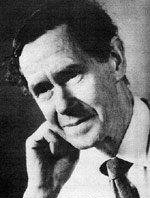 My current lunch time reading project is the 2007 book by Nancey Murphy and Warren Brown, Did My Neurons Make Me Do It? Philosophical and Neurobiological Perspectives on Moral Responsibility and Free Will (Oxford University Press). Although I’ve only just broached the first chapter, I can already tell that I’m really going to enjoy it immensely, and from time to time I might share some of the really good bits as I work my way through it.
My current lunch time reading project is the 2007 book by Nancey Murphy and Warren Brown, Did My Neurons Make Me Do It? Philosophical and Neurobiological Perspectives on Moral Responsibility and Free Will (Oxford University Press). Although I’ve only just broached the first chapter, I can already tell that I’m really going to enjoy it immensely, and from time to time I might share some of the really good bits as I work my way through it.
The book is basically a defence of the view that there is a plausible physicalist conception of the mind that is compatible with moral responsibility and free will, but along the way you end up getting a great introduction to the position in philosophy of mind called nonreductive physicalism.
Like the authors, I’m a physicalist. I’m not a mind-body dualist like a large number of my Christian peers who believe that we are a combination of two very different and (potentially) independent substances: intelligent, conscious souls, and mundane matter. An observation really leapt off the pages at me today. I can so easily relate to this observation, because I sometimes observe my Christian peers who are mind-body dualists struggle with the idea of physicalism for just this reason.
Mary Midgley characterised physicalism like this:
If certain confusions result from Descartes’ having sliced human beings down the middle, many feel that the best cure is just to drop the immaterial half altogether … The philosophers who favour this programme are known as Physicalists.1
I suppose technically someone who does this is a physicalist, since he will have to say that people are made only of physical stuff, but I would hate to think that anyone would assume that because I am a physicalist I am committed to this view. In a Cartesian view (i.e the view of Descartes) The mind is the true self, the seat of all consciousness, the marker of personal identity, the active ingredient in the person whereas the body is passive, unnecessary and more of a machine than anything else. Any decent variety of physicalism (and certainly nonreductive physicalism) is not just dualism with the soul removed. Radical dualism and physicalism have very basically different views not just on the nature of the mind, but also on the capacity of the body. If we were to just accept the Cartesian view of the body with the soul stripped away, we would be left with nothing but a machine, something like a zombie – which (although incredibly cool in it’s own way) is nothing like what your average physicalist is likely to believe in.
To use another analogy, I’m reminded of the words of Nursie on Blackadder II when she recounted the birth of Queen Elizabeth I:
Out you popped, out of your mummie’s tumkin and everybody shouting, ‘It’s a boy, it’s a boy!’ And somebody said, ‘But it hasn’t got a winkle!’ And then I said, ‘A boy without a winkle? God be praised, it’s a miracle. A boy without a winkle!’ And then Sir Thomas More pointed out that a boy without a winkle is a girl, and everyone was really disappointed.
It’s obvious what’s wrong here. A girl isn’t just a boy with a missing penis. Every DNA molecule [EDIT: this should read “every cell“] of a girl’s body is different from that of a boy. Remember, physicalists don’t just reject the dualistic view of the mind. They also reject the dualistic view of the body, and physicalism is not just dualism minus the soul.
1Mary Midgely, “The Soul’s Successors: Philosophy and the ‘Body’,” in Sarah Coakley (ed.), Religion and the Body (Cambridge: Cambridge University Press, 1997), 53.


 I submit the following questions/requests/general comments for the consideration of all journal editors out there.
I submit the following questions/requests/general comments for the consideration of all journal editors out there. Hi all!
Hi all!
 In the “nuts and bolts” series, I explain and discuss some of the fundamental ideas in philosophy (and theology sometimes) that are taken for granted within the discipline, but which might not be very well known to ordinary human beings. This time the subject is nominalism.
In the “nuts and bolts” series, I explain and discuss some of the fundamental ideas in philosophy (and theology sometimes) that are taken for granted within the discipline, but which might not be very well known to ordinary human beings. This time the subject is nominalism. From the 17th to the 23rd of November 2010 the annual conference of the Evangelical Philosophical Society will be held in Atlanta, Georgia, in the USA. This year my good friend and fellow blogger Matt Flannagan will be attending and speaking on “God and the Genocide of the Canaanites.” Here’s the blurb on his talk from the
From the 17th to the 23rd of November 2010 the annual conference of the Evangelical Philosophical Society will be held in Atlanta, Georgia, in the USA. This year my good friend and fellow blogger Matt Flannagan will be attending and speaking on “God and the Genocide of the Canaanites.” Here’s the blurb on his talk from the  Does a divine command theory of morality imply that people who don’t believe in God (and the right God at that) cannot know right from wrong?
Does a divine command theory of morality imply that people who don’t believe in God (and the right God at that) cannot know right from wrong?
 Is the existence of God really more queer or strange than the idea that torture and murder are not objectively wrong?
Is the existence of God really more queer or strange than the idea that torture and murder are not objectively wrong?